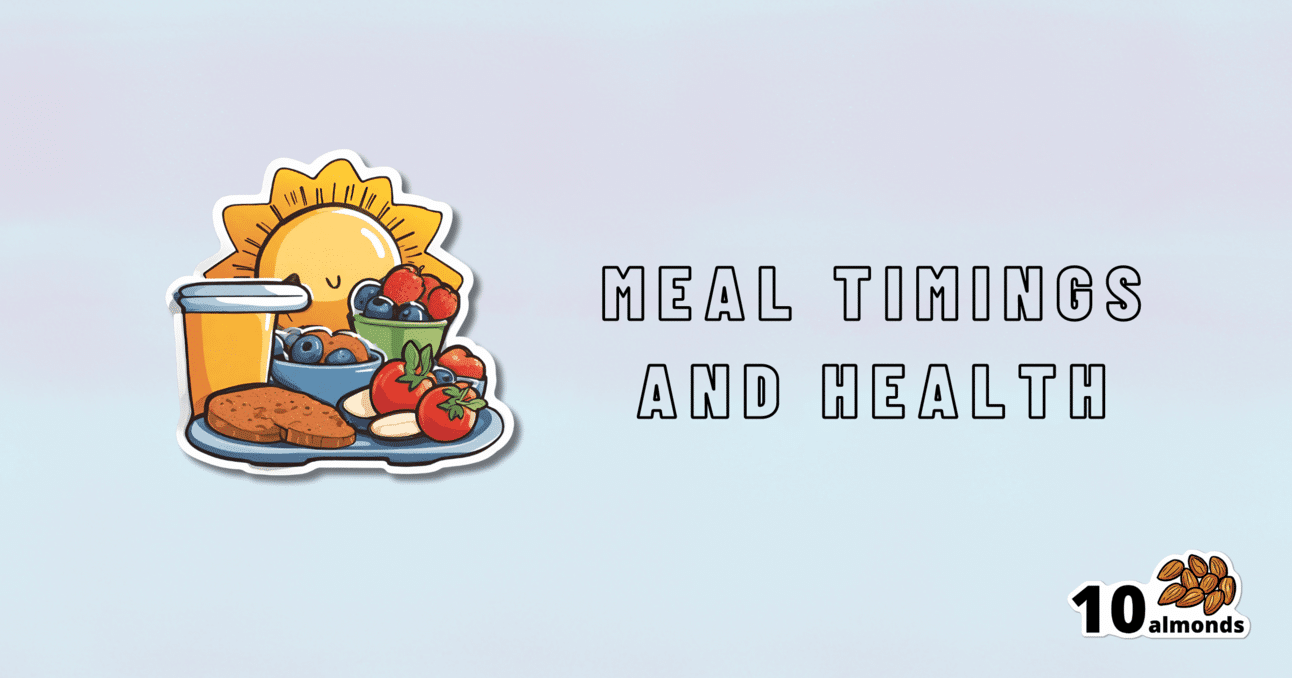Breakfasting For Health?
Optimal breakfast time: around 10am. Late-night eating may hinder fasting benefits. Prioritize morning meals for circadian rhythm and intermittent fasting benefits.

Breakfast Time!
In yesterday’s newsletter, we asked you for your health-related opinions on the timings of meals.
But what does the science say?
Quick recap on intermittent fasting first:
Today’s article will rely somewhat on at least a basic knowledge of intermittent fasting, what it is, and how and why it works.
Armed with that knowledge, we can look at when it is good to break the fast (i.e. breakfast) and when it is good to begin the fast (i.e. eat the last meal of the day).
So, if you’d like a quick refresher on intermittent fasting, here it is:
Intermittent Fasting: We Sort The Science From The Hype
And now, onwards!
One should eat breakfast first thing: True or False?
True! Give or take one’s definition of “first thing”. We did a main feature about this previously, and you can read a lot about the science of it, and see links to studies:
The Circadian Rhythm: Far More Than Most People Know
In case you don’t have time to read that now, we’ll summarize the most relevant-to-today’s-article conclusion:
The optimal time to breakfast is around 10am (this is based on getting sunlight around 8:30am, so adjust if this is different for you)
It doesn’t matter when we eat; calories are calories & nutrients are nutrients: True or False?
Broadly False, for practical purposes. Because, indeed calories are calories and nutrients are nutrients at any hour, but the body will do different things with them depending on where we are in the circadian cycle.
For example, this study in the Journal of Nutrition found…
❝Our results suggest that in relatively healthy adults, eating less frequently, no snacking, consuming breakfast, and eating the largest meal in the morning may be effective methods for preventing long-term weight gain.
Eating breakfast and lunch 5-6 h apart and making the overnight fast last 18-19 h may be a useful practical strategy.❞
Read in full: Meal Frequency and Timing Are Associated with Changes in Body Mass Index
We should avoid eating too late at night: True or False?
False per se, True in the context of the above. Allow us to clarify:
There is nothing inherently bad about eating late at night; there is no “bonus calorie happy hour” before bed.
However…
If we are eating late at night, that makes it difficult to breakfast in the morning (as is ideal) and still maintain a >16hr fasting window as is optimal, per:
❝the effects of the main forms of fasting, activating the metabolic switch from glucose to fat and ketones (G-to-K), starting 12-16 h after cessation or strong reduction of food intake❞
~ Dr. Françoise Wilhelmi de Toledo et al.
So in other words: since the benefits of intermittent fasting start at 12 hours into the fast, you’re not going to get them if you’re breakfasting at 10am and also eating in the evening.
Summary:
- It is best to eat breakfast around 10am, generally (ideally after some sunlight and exercise)
- While there’s nothing wrong with eating in the evening per se, doing so means that a 10am breakfast will eliminate any fasting benefits you might otherwise get
- If a “one meal a day, and that meal is breakfast” lifestyle doesn’t suit you, then one possible good compromise is to have a large breakfast, and then a smaller meal in the late afternoon / early evening.
One last tip: the above is good, science-based information. Use it (or don’t), as you see fit. We’re not the boss of you:
- Maybe you care most about getting the best circadian rhythm benefits, in which case, prioritizing breakfast being a) in the morning and b) the largest meal of the day, is key
- Maybe you care most about getting the best intermittent fasting benefits, in which case, for many people’s lifestyle, a fine option is skipping eating in the morning, and having one meal in the late afternoon / early evening.
Take care!
Share This Post
Learn To Grow
Sign up for weekly gardening tips, product reviews and discounts.




